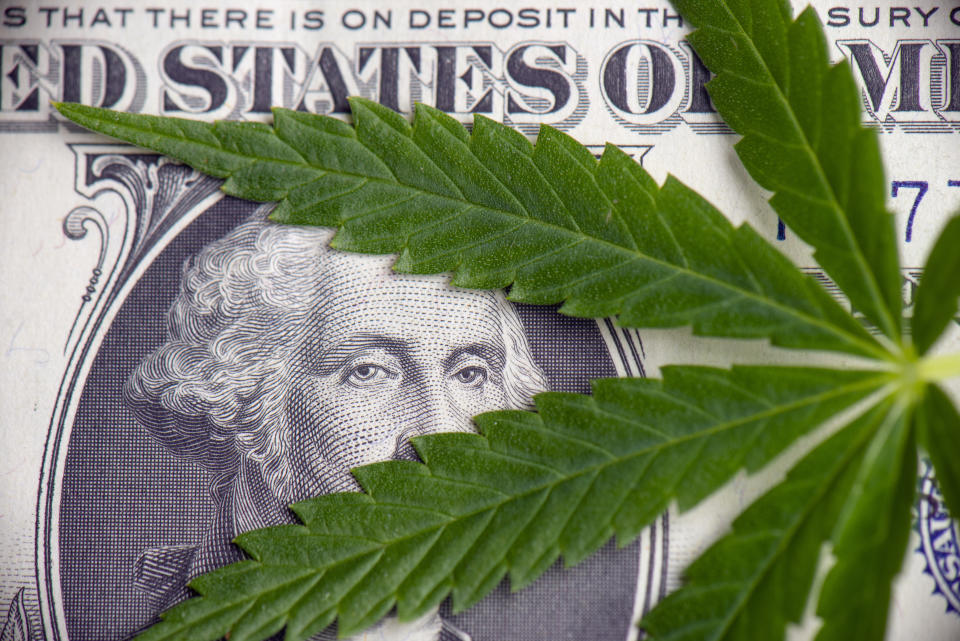Cannabis investors could get a tax break in Opportunity Zones

Investors could get a tax break if they put money into companies with cannabis dispensaries in distressed economic areas, according to some legal experts, following the final release of Opportunity Zone regulations on December 19.
The Opportunity Zone program, created in 2017 as part of the Tax Cuts and Jobs Act, allows investors to defer or waive capital gains tax on investments in distressed economic areas. The program was designed to draw investment dollars to low-income communities in the U.S. And so far, there still isn’t any language excluding cannabis investments from the program.
“The idea that it [that cannabis investors might not be eligible for the program] is a point of controversy is just not true… It’s very uncontroversial as far as we’re concerned,” said James Mann, partner at Greenspoon Marder LLP tax practice. Mann has six clients with funds dedicated to investing in cannabis companies located in Opportunity Zones in California, Nevada, Georgia and Massachusetts.
Regulations explicitly banned a list of “sin” businesses, like liquor stores, massage parlors and gambling halls, since the program began in 2017. Cannabis was missing from the list, but the absence of finalized regulations created an uncertain investing atmosphere. Any doubt about whether cannabis would be excluded has disappeared with this final iteration of the Opportunity Zone regulations, said Mann. But not everyone agrees.
Some advise caution
Cannabis investments in Opportunity Zones are still a point of controversy, despite the growing confidence of cannabis-related lawyers and investors. Cannabis could be excluded from the program because it is federally illegal, just as cocaine dealers are not a part of the exclusions, said David Shapiro, partner and co-chair of tax, compensation and benefits at Philadelphia-based law firm Saul Ewing Arnstein & Lehr LLP.
“I don’t think we’re going to see an update to the list of sin businesses that says some crimes are OK, but not every crime,” said Shapiro, who said cannabis might be in the same category as alcohol if it were federally decriminalized. “It is a weird netherworld where it is legal under some state laws and is criminal under national law. I would counsel clients to be careful when engaging in cannabis Opportunity Zone funds.”
In May, U.S. Treasury Secretary Steven Mnuchin reportedly advised the Senate to not allow cannabis companies in the Opportunity Zone program, noting that it goes against the program’s spirit.
“He was just spouting off… And really, the binding advice the Treasury issues is in the form of regulations, so stuff people say offhand isn’t authoritative,” said Mann. But others said this is the “cherry on top” proving that investors should hold back, according to Zachary Gordon, cannabis industry practice leader at New York-based accounting firm Janover LLC.
Getting tax breaks will take legal gymnastics
With definitive opinions on both sides, legal experts agree that there are, at least, some legal gymnastics involved in qualifying for these tax benefits.
According to the U.S. Internal Revenue Code section 280(e), illegal drug “traffickers” — including dispensaries, which are technically illegal under federal law — cannot get tax breaks. This code applies to everyone, not just participants in the Opportunity Zone program. But investors in cannabis businesses expect to be excluded from this stipulation. Much of eligibility for this program could come down to the structure of the business, said Gordon.
“280(e) is this weird exception for drug trafficking, but only denies it to the so-called traffickers themselves, not investors,” said Mann.
Even if cannabis dispensaries are not eligible for Opportunity Zone tax benefits, the new regulations allow businesses to receive 5% of income from “sin” operations — so weed gummies and other cannabis products will likely be permitted in states where cannabis is legalized, said Gordon.
Sarah Paynter is a reporter at Yahoo Finance. Follow her on Twitter @sarahapaynter
Read the latest financial and business news from Yahoo Finance
Follow Yahoo Finance on Twitter, Facebook, Instagram, Flipboard, SmartNews, LinkedIn, YouTube, and reddit.
More from Sarah:
Hotel developers are pushing this Lego-like construction trend
Trump-branded properties lost value since 2016 election, study shows
NYC startup launches WeWork-like service for online retailers

 Yahoo Finance
Yahoo Finance 
